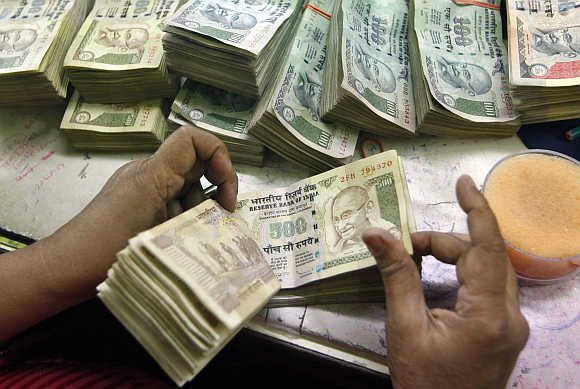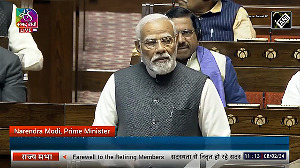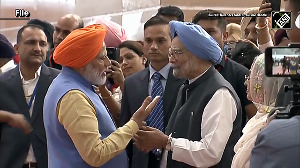
Domestic demand push would help India clock 7.9 per cent growth rate in the current fiscal, up from 7.6 per cent in 2015-16.
Implementation of the much- awaited pay hike for over 1 crore (10 million) central government employees and pensioners will be a positive for the economy as it will push up consumption although its impact on inflation is likely to be moderate, economists say.
The Cabinet, headed by Prime Minister Narendra Modi, on Wednesday cleared the recommendations of the 7th Pay Commission according to which the overall hike in salary and allowance of central government employees and pensioners comes to 23.5 per cent.
Experts said the higher pay out will boost consumption demand, especially for consumer durables and services.
This domestic demand push would help India clock 7.9 per cent growth rate in the current fiscal, up from 7.6 per cent in 2015-16.
"Implementation of the 7th Pay Commission recommendations will have a positive impact on demand for consumer durables and services. Overall it is positive for growth with modest risk on inflation," ICRA Senior Economist Aditi Nayar said.
Besides, at a time of global headwinds arising out of Britain's exit from European Union (commonly termed Brexit), the increased pay out to over 1 crore (10 million) government employees and pensioners would boost gross domestic product growth to 7.9 per cent in 2016-17, up from 7.6 per cent a year ago.
"The implementation of 7th Pay Commission comes in at a time when globally we are facing downside risk from brexit.
"The domestic demand push as well as good monsoon will drive growth.
"We estimate gross domestic product growth at 7.9 per cent in 2016-17.
"Besides arrears pay out will also mildly support consumption demand," Crisil Chief Economist D K Joshi said.
The 7th Pay Commission had recommended 23.55 per cent overall hike in salaries, allowances and pension involving an additional burden of Rs 1.02 lakh crore (Rs 1.02 trillion) or nearly 0.7 per cent of the gross domestic product.
The recommendation would be effective from January 1, 2016.
As regards its impact on inflation, Nayar said there could be some uptick in services inflation, while the impact on manufactured inflation would be contained given moderate capacity utilisation.
Increased payout, including arrears, might lead to higher spending, which would in turn boost consumption demand, thereby spreading the risk of inflationary pressures.
"The decline in global crude and commodity prices as well as good monsoon would act as an offsetting factor for any pressure on prices as result of 7th Pay Commission," Joshi said.
The pay panel had in November recommended 14.27 per cent hike in basic pay at junior levels, the lowest in 70 years.
The previous 6th Pay Commission had recommended a 20 per cent hike which the government doubled while implementing it in 2008.
After considering the increase proposed in allowances, the hike in remunerations comes to 23.55 per cent.
Image: An employee counts rupee notes at a cash counter inside a bank in Kolkata. Photograph: Rupak De Chowdhuri/Reuters










 © 2024 Rediff.com -
© 2024 Rediff.com -